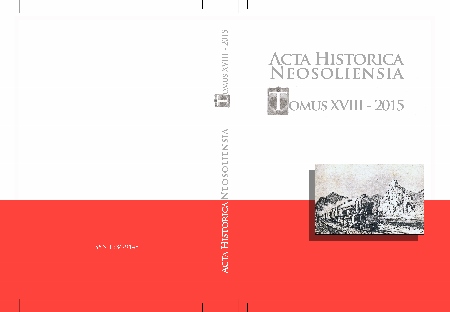Stosunki polsko-ukraińskie i polsko-rosyjskie w opinii słoweńskiej w II połowie XIX wieku
Polish-Ukrainian and Polish-Russian Relations in the Slovene Opinion in the second Half of the 19th Century
Author(s): Antoni CetnarowiczSubject(s): Cultural history, Ethnohistory, 19th Century
Published by: Filozofická fakulta Univerzity Mateja Bela
Summary/Abstract: One of the main problems in which Slovenes had a keen interest in the 19th century and which had a special impact on their attitude to Poles was the Ukrainian issue. This followed from the fact that Ukrainians, or as they were called at the time, Ruthenians, belonged, like Slovenes, to so-called ‘non-historical’ nations and some of their national demands, especially those concerning language issues, overlapped with the slogans of the Slovene nationalist movement. Therefore, pro-Ukrainian sympathies of Slovene activists partly stemmed from the existing similarities with respect to the political situation and the problem of nationality. However, despite their sympathy for the Ukrainian national revival movement, Slovenes did not really like the support given to Ukrainians by the Austrian government and local authorities. The January Uprising of 1863 had a lively resonance among Slovenians. Generally, however, it cannot be said that the Polish uprising was popular among Slovenes; at most, they expressed sympathy for the fate of the insurgents. It seems that the general evaluation of the uprising was influenced by the opinions of conservative Czech politicians, who enjoyed high esteem among the majority of Slovene activists. The beginning of the era of dualism did not bring any essential changes in the attitude of the activists of the Slovene national movement with regard to the Polish-Ukrainian matter in Galicia. The fact that Poles did not accept the Ukrainian demands for the equality of rights was constantly criticised by the Slovene side. The increase of pro-Russian sympathies, which was starting to become visible from 1867 among southern Slavs, and the development of the pan-Slavic idea meant that the subject of Polish-Russian relations was frequently discussed by Slovene activists, especially in the camp of the so-called ‘Young Slovenes’ (Mladoslovenci). One of their leaders, Josip Vošnjak, called the Polish-Russian conflict ‘the most painful sore on the Slavic body, to which no one knew the cure’. However, there was a belief, supported by the Pan-Slavic Russian propaganda, that it was not the entire Polish nation but the Polish nobility that was an enemy of Russia. ‘Young Slovenes’ therefore hoped that there would be a Polish-Russian agreement and Poles – it was written – would return ‘to Slavdom’.
Journal: Acta historica Neosoliensia
- Issue Year: 18/2015
- Issue No: 1
- Page Range: 161-179
- Page Count: 19
- Language: Polish

